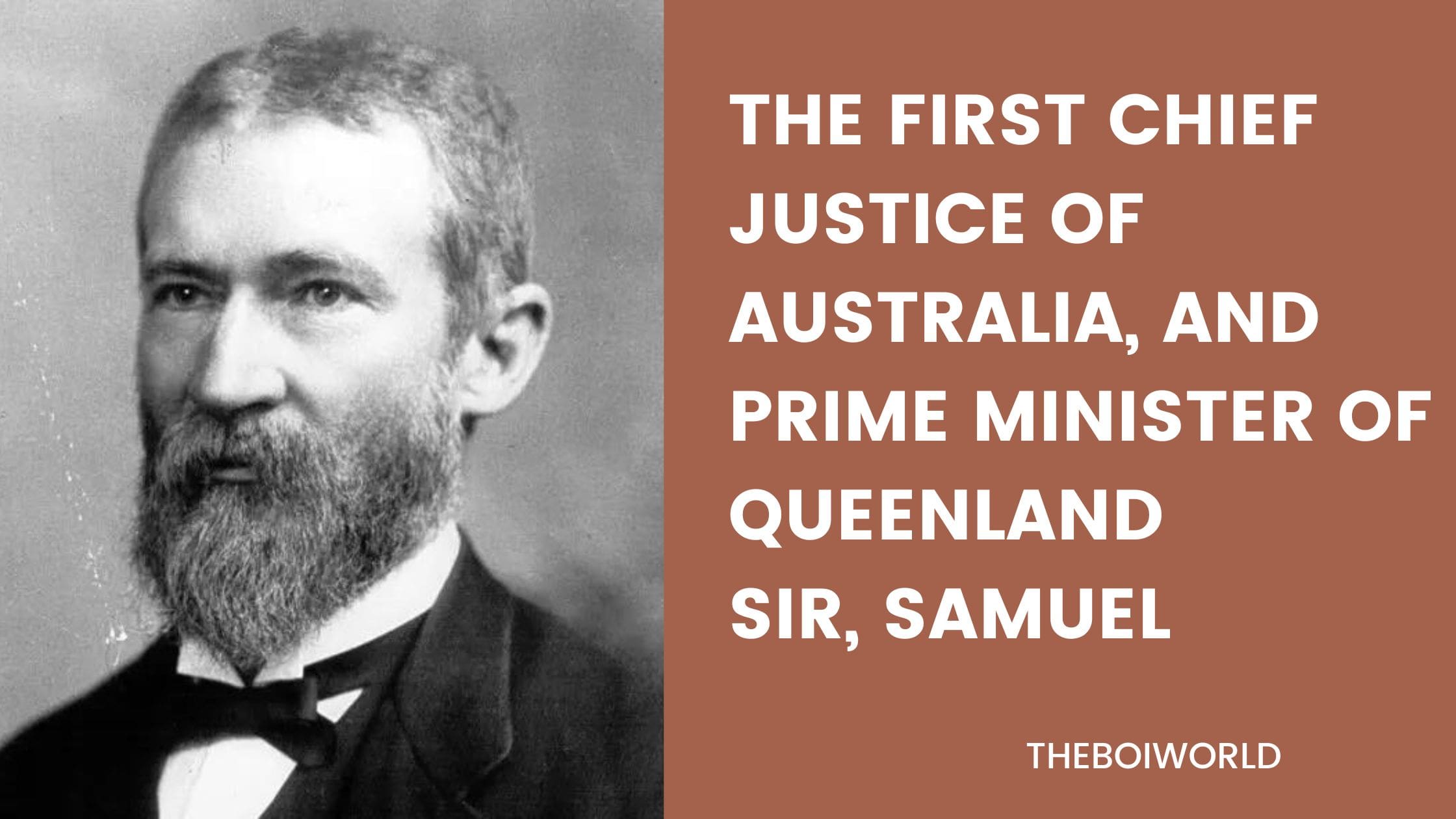“Biography of Sir Samuel Griffith: Architect of Australian Constitution”

Introduction:
Sir Samuel Griffith was a prominent public figure of Australian history. he played pivotal roles in shaping the constitutional foundations of the nation.
So if you are searching the Biography of Sir Samuel Griffith then you came on the right platform below it is given just read it.
Early Life :
Sir Samuel Griffith was born on 21 June 1845 in Merthyr Tydfil, Wales.then his parents migrating to Queensland, Australia.
sir Samuel Griffith did hard work and he done verious jobs like reacher,Journalist the in 1867 he decided to legal job and admitted to the Queensland Bar and setting the stage for a career that would shape Australia’s legal and constitution.

Academic Qualification:
Sir Samuel Griffith got his studies at Sydenham College in England. This educational foundation provided him with the tools for future emphasizing versatility and adaptability,qualities to his multifaceted career in law, politics and the constitutional development of Australia.
Griffith’s early education set the stage for a lifetime dedicated to intellectual pursuits and public service.
Personal Life:
Sir Griffith married to Julia Lennon in 1869. Julia was the daughter of George Alison who was a prominent pastoralist in Queensland. Their union brought familial connections and reflected Griffith’s integration into the local Queensland community. after married they got six children.
Also Read: https://theboiworld.com/the-founding-father-george-washingtons-legacy-in-liberty/
Early Career:
Sir Samuel Griffith’s early career was a testament to his versatility commitment to public service. Which gives a remarkable legal and political journey.
Journalist and Teacher:
After migrated in Queensland sir Griffith embraced various roles initially working as a journalist. Which reflecting a commitment to education and community development.
Legal Profession:
Griffith’s pivotal career shift occurred when he entered the legal profession. Admitted to the Queensland Bar in 1867. Griffith’s early legal practice showcased his dedication and unwavering commitment to justice.
Colonial Political Engagement:
Griffith’s interest in public service extended to colonial politics. he was elected to the Queensland Legislative Assembly In 1872.
Griffith’s early political engagements demonstrated his aptitude for leadership and governance.
Attorney-General of Queensland:
Sir Griffith was appointed as the Attorney-General of Queensland in 1874. This marked a significant milestone in his early career to positioning him as a key figure in the legal administration of the colony.
Contributions to Legal Reform:
Griffith’s early career also saw his active involvement in legal reform. His efforts were instrumental in shaping Queensland’s legal system to showcasing a dedication to improving and modernizing legal frameworks.
Constitutional Drafting:
Griffith played a crucial role in the drafting of the Queensland Constitution in the 1890s. This experience laid the groundwork for his later contributions to the Federation of Australia.
Judicial Career:
Sir Samuel Griffith’s judicial career stands as an enduring testament to his legal acumen and the profound impact he had on the legal landscape of Australia.
Appointment as Chief Justice of Queensland:
Griffith’s judicial journey commenced with his appointment as the Chief Justice of Queensland in 1893. This marked a significant milestone to recognizing his legal expertise and leadership qualities.
Contributions to Legal Precedents:
As Chief Justice sir Griffith made notable contributions to the development of legal precedents. His judgments demonstrated a keen understanding of the law, and many of his decisions left a lasting impact on the legal framework in Queensland.
Federation and the High Court:
Griffith’s influence extended to the national level as he played a pivotal role in the federation movement. as a delegate to the Constitutional Conventions he contributed significantly to the drafting of the Australian Constitution. and In 1903 he became the first Chief Justice of the High Court of Australia.
Chief Justice of the High Court:
His leadership and judicial wisdom were instrumental in shaping the role of the High Court and its significance within the federal structure.
Read Also: https://theboiworld.com/scott-morrison-2024-leadership-resilience-vision/
Political Career:
Sir Samuel Griffith’s political career is a tapestry woven with leadership, constitutional prowess, and a deep commitment to public service.
Drafting the Queensland Constitution:
Griffith played a key role in drafting the Queensland Constitution in the 1890s to showcasing his constitutional expertise and laying the groundwork for his later contributions to the Federation of Australia.
Federation Movement:
Griffith emerged as a prominent figure in the federation movement to advocating for the unification of the Australian colonies into a single nation. As a delegate to the Constitutional Conventions he played a crucial role in drafting the Australian Constitution.
Prime Minister of Queensland:
Griffith’s political ascent reached its zenith when he became the Prime Minister of Queensland in 1883. His tenure was marked by a commitment to progressive policies and a dedication to the welfare of the people.
Death:
Sir Samuel Griffith’s death on 9 August 1920 His passing in Brisbane, Queensland, signaled the end of a life that had played a pivotal role in the nation’s legal and political development.
So friend if this article was excellent then share it to your friends and if any mistake done then you can suggest me by comment.
And thank for giving a Lot of time on this website please visit again.
Author: Shalik Khan







